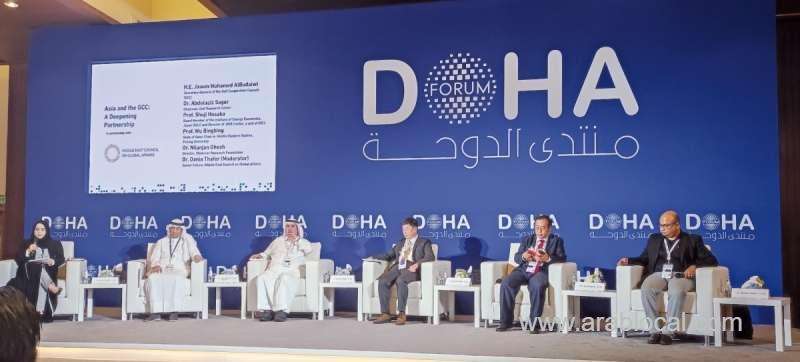
The 21st edition of the Doha Forum, a two-day event hosted at the Sheraton Grand Doha Resort & Convention Hotel, featured a panel discussion titled ‘Asia and the GCC: A Deepening Partnership.’ The extensive range of topics discussed included issues in Asia-Gulf relations, spanning energy, technology cooperation, climate change, and the evolving dynamics in Asia-GCC relations beyond conventional energy-centric trade ties.
Moderated by Dr. Dania Thafer, Senior Fellow at the Middle East Council on Global Affairs, the discussion highlighted the Gulf states' increasing engagement with Asian nations, extending to organizations like the Shanghai Cooperation Organisation and BRICS. This shift in geopolitical focus was exemplified by China's growing involvement in the Gulf, transitioning from purely commercial interests to a more significant political role, including mediating between Saudi Arabia and Iran.
Dr. Thafer emphasized the India-Middle East-Europe Economic corridor, challenging China's Belt and Road Initiative, and backed by the United States. She noted that despite the complexities introduced by the war in Gaza, Japan's extension into security and defense cooperation in the region added another layer of complexity, particularly concerning freedom of navigation and critical waterways.
GCC Secretary General H E Jasem Mohamed AlBudaiwi, part of the panel, clarified that strengthening ties with Asian countries did not signify a departure from strategic and historical partners like the United States. He highlighted the historic ties between GCC countries and Asia, emphasizing a comprehensive effort by the GCC to integrate with various regions globally. In 2021, the trade volume between GCC and Asia reached $516 billion.
Addressing the impact of U.S.-China competition, Prof Wu Bingbing, Director of the Centre for Middle Eastern Studies at Peking University, stated that China does not perceive a strategic competition with the U.S. in the Middle East. Emphasizing mutual understanding, he highlighted China's strong relations with GCC countries in oil and energy imports, as well as collaborations in digital economy, healthcare, medical science, and the defense sector.